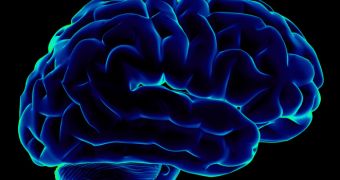Scientists with the Center for Theoretical Neuroscience at the University of Waterloo in Canada will soon present their newest work carried out with the Spaun simulation, a high-precision model of the human brain that can be used to investigate the root cause of various mental disorders.
Spaun has already been used to study conditions such as Parkinson’s and Huntington’s diseases, but experts led by postdoctoral researcher Terrence Stewart, PhD, now want to move on to studying dementias such as Alzheimer's disease. This will become possible only when the simulation gets a hippocampus, an area of the brain that plays an important role in forming and storing memories.
In a presentation scheduled to be held at the annual meeting of the American Association for the Advancement of Science (AAAS) in Chicago, Stewart will reveal how he and his team will use the computer simulation to figure out how drugs can affect either of these mental conditions.
“Our hope is that you could try out different possible treatments quickly to see how the brain reacts and how each one changes behavior before testing them in people. Our brain model offers a new way to test treatments,” the team leader explains, quoted by PsychCentral.

 14 DAY TRIAL //
14 DAY TRIAL //